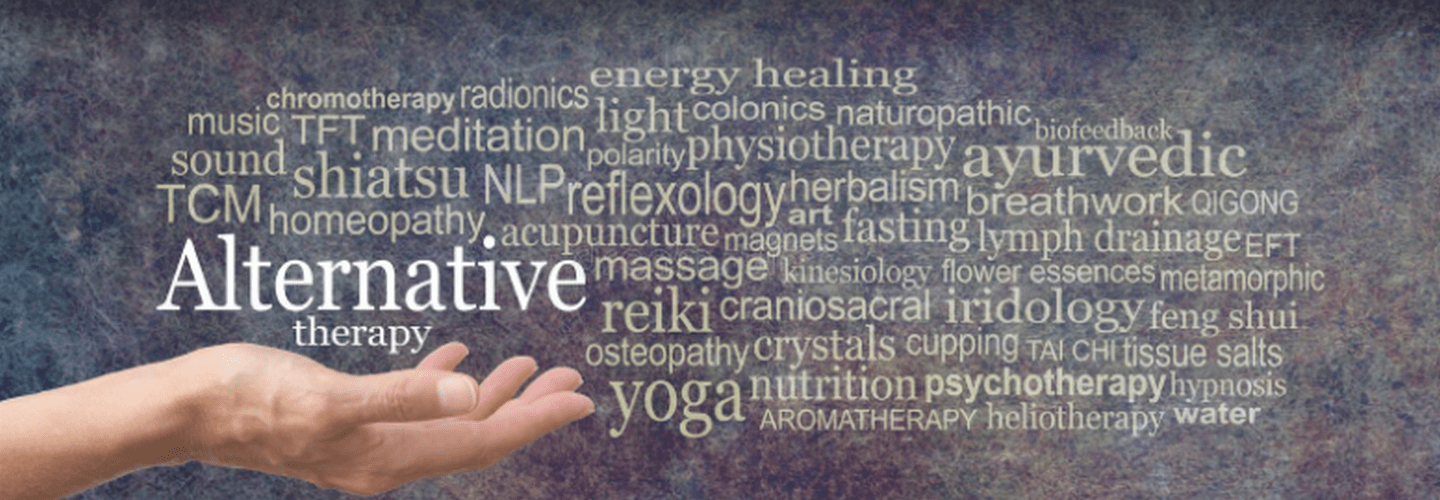
Hypnotherapy techniques offer powerful tools for effective stress management, promoting relaxation and resilience. By accessing the subconscious mind, individuals can develop positive coping mechanisms and foster personal growth. Breathing exercises, mindfulness, and visualization techniques form a foundation for reducing stress. Choosing a qualified hypnotherapist with relevant experience is essential for tailored support. Self-hypnosis tips, such as progressive muscle relaxation, aid in stress relief. Integrating hypnotherapy into daily routines enhances its impact on stress reduction. Learn how self-hypnosis and personalized suggestions can further enhance stress management and overall well-being.
Key Takeaways
- Utilize hypnotherapy for deep relaxation and stress relief.
- Incorporate personalized hypnotic suggestions for tailored stress management.
- Practice daily self-hypnosis with positive affirmations for consistent relief.
- Combine hypnotherapy techniques with calming activities like meditation.
- Regular self-hypnosis aids in coping with and reducing daily stressors.
Benefits of Hypnotherapy for Stress
Hypnotherapy for stress offers a transformative approach to alleviating tension, anxiety, and fostering holistic healing. By combining Cognitive Behavioral Therapy (CBT) principles with hypnotherapy techniques, individuals can experience significant stress reduction and enhanced mental health. One of the key advantages of hypnotherapy is its ability to induce deep relaxation, allowing individuals to access their subconscious minds and explore the root causes of their stress.
Through hypnotherapy, individuals can learn effective relaxation techniques that not only reduce stress levels but also promote overall well-being. By tapping into the power of the subconscious mind, hypnotherapy helps individuals reframe their thoughts and develop more positive coping mechanisms for managing stress. This process enables individuals to change their attitudes towards stress and build resilience in the face of daily challenges.
Furthermore, hypnotherapy can assist individuals in setting positive goals and visualizing a life free from the constraints of stress and anxiety. By fostering deep relaxation, hypnotherapy creates a safe space for individuals to explore their emotions and work towards achieving inner peace. Ultimately, the benefits of hypnotherapy extend beyond stress management to encompass personal growth, self-discovery, and a renewed sense of purpose in life.
Understanding Stress Triggers
When exploring the factors contributing to stress, it becomes evident that stress triggers encompass a wide range of influences, from everyday challenges to environmental stimuli. Stress triggers can manifest in various forms such as work pressure, relationship conflicts, financial worries, and health concerns. Additionally, environmental factors like noise, pollution, and overcrowding can also greatly contribute to elevated stress levels.
It is essential to recognize that ongoing stressors have the potential to lead to chronic stress, which can have detrimental effects on physical health, mental well-being, and overall quality of life. Early intervention plays an important role in mitigating the impact of chronic stress. By identifying stress signs and triggers, individuals can proactively develop coping strategies to manage stress effectively.
Understanding stress triggers is the first step towards implementing coping mechanisms and seeking appropriate support systems. By acknowledging the diverse sources of stress and their effects on mental well-being, individuals can take proactive steps to safeguard their health and happiness. By addressing stress triggers early on and developing healthy coping strategies, individuals can pave the way for a more balanced and fulfilling life.
Techniques for Stress Reduction

Discovering effective techniques for stress reduction can be transformative in managing the challenges of daily life.
By incorporating practices like breathing exercises, mindfulness meditation, and visualization techniques into your routine, you can cultivate a sense of calm and resilience.
These tools offer powerful ways to combat stress and enhance overall well-being, empowering you to navigate life's demands with greater ease.
Breathing Exercises for Stress
Incorporating specific breathing exercises into your daily routine can be a powerful tool for managing stress and promoting relaxation.
Deep breathing techniques such as diaphragmatic breathing, box breathing, and 4-7-8 breathing are effective ways to trigger the body's relaxation response, reducing heart rate and blood pressure to alleviate stress.
These exercises not only help regulate emotions but also enhance mindfulness, allowing for improved focus and mental clarity during challenging situations.
Consistent practice of these breathing exercises increases oxygen flow, leading to overall well-being.
Mindfulness Meditation Practice
Starting on a journey of mindfulness meditation practice can be a transformative experience in cultivating resilience and reducing stress levels. This practice combines hypnotherapy with mindfulness techniques, emphasizing present moment awareness and self-hypnosis during sessions.
Research has shown that participants engaging in mindful hypnotherapy reported decreased distress and increased mindfulness. Compared to traditional mindfulness training, mindful hypnotherapy aims to expedite the acquisition of mindfulness skills more efficiently. A study with 42 stressed college-aged individuals demonstrated the effectiveness of this approach for stress reduction.
Visualization Techniques for Relaxation
Embarking on a journey into visualization techniques in hypnotherapy opens the gateway to a realm of relaxation and stress reduction through the power of vivid mental imagery.
Guided imagery during hypnotherapy sessions can transport individuals to serene settings, such as a peaceful beach at sunset, a tranquil forest with sunlight filtering through the leaves, or a cozy cabin by a crackling fireplace. These visualizations help in calming the mind, releasing tension, and fostering emotional well-being.
By incorporating visualization techniques, hypnotherapy becomes a powerful tool for managing stress, promoting relaxation, and enhancing overall mental health.
Embrace the potential of these techniques to create a sanctuary of tranquility within your mind, fostering a sense of balance and harmony in your life.
Finding a Qualified Hypnotherapist

When seeking a qualified hypnotherapist, it's important to prioritize their credentials and experience in stress management techniques. Look for certifications from reputable organizations and inquire about their specific training in this area.
Establishing a strong connection and trust with your hypnotherapist is vital for the success of your stress management journey.
Choosing a Hypnotherapist
Finding a qualified hypnotherapist for stress management involves thoroughly evaluating their certification, relevant training, and experience in treating stress-related issues. When choosing a hypnotherapist, consider the following:
- Certification: Look for a hypnotherapist who holds the necessary certifications in hypnotherapy techniques for stress management.
- Experience: Confirm the hypnotherapist has a proven track record of successfully treating stress and anxiety, providing a safe and comfortable environment for sessions.
- Therapeutic Alliance: Select a hypnotherapist who resonates with you personally to establish a positive therapeutic alliance, important for effective stress management.
Credentials and Experience
In the search for a qualified hypnotherapist for stress management, prioritizing individuals with recognized credentials and substantial experience is essential. Look for hypnotherapists holding certifications from reputable organizations and assess their years of practice and specialization in stress management.
Additionally, consider reading client testimonials to evaluate the hypnotherapist's effectiveness in addressing stress-related issues. It is important to confirm that the hypnotherapist's approach aligns with your comfort level and stress management goals.
Verifying their commitment to ethical standards and professional conduct within the field of hypnotherapy is also necessary. By choosing a hypnotherapist with the right credentials, experience, and adherence to ethical standards, you can start on a stress management journey with confidence and trust in the process.
Self-Hypnosis Tips for Stress Management
To effectively manage stress through self-hypnosis, individuals can cultivate a deeply relaxed state by focusing on breath and practicing progressive muscle relaxation techniques. Self-hypnosis is a powerful tool for stress relief and can be enhanced by incorporating the following tips:
- Utilize Hypnotherapy Audios: Listening to hypnotherapy audios created by trained professionals can assist individuals in mastering self-hypnosis techniques effectively. These audios often guide the listener through the process, making it easier to induce a state of deep relaxation.
- Incorporate Positive Hypnotic Suggestions: While in a deeply relaxed state, delivering positive hypnotic suggestions can further aid in stress reduction and promote overall relaxation. These suggestions can help reframe negative thought patterns and instill a sense of calmness and well-being.
- Personalize Your Suggestions: Creating personalized hypnotic suggestions tailored to your specific stressors and needs is essential in self-hypnosis practice. By addressing individual concerns through personalized affirmations, individuals can experience more profound effects and better stress management outcomes.
Integrating Hypnotherapy Into Daily Routine

In addition, integrating self-hypnosis techniques into your daily routine can be a powerful way to ease stress and cultivate a state of relaxation. By setting aside a specific time each day to engage in self-hypnosis, you not only prioritize your mental well-being but also create a consistent practice for stress relief.
Listening to self-hypnosis audios during designated relaxation periods can reinforce positive suggestions aimed at stress management. This practice, when done regularly, can have a profound impact on your ability to cope with daily stressors. In addition, combining self-hypnosis with other calming activities such as meditation or deep breathing can further enhance its effectiveness in promoting relaxation and reducing tension.
Frequently Asked Questions
How Does Hypnotherapy Reduce Stress?
Hypnotherapy reduces stress by tapping into the mind-body connection, triggering the relaxation response, and facilitating cognitive restructuring.
Through positive affirmations, visualization techniques, and self-hypnosis practices, it encourages a shift in thought patterns and emotional responses.
What Are the 5 A's of Stress Management?
The 5 A's of stress management are essential strategies for maneuvering through challenging situations: Avoid, Alter, Adapt, Accept, and Ask for help. Each 'A' offers a unique approach to handling stress, from recognizing and avoiding stressors to adjusting attitudes and seeking support.
What Are the 4 A's of Stress Management?
The 4 A's of stress management – Avoid, Alter, Adapt, and Accept – offer a thorough framework for addressing stressors effectively.
These strategies encourage individuals to proactively manage stress by either avoiding triggers, making changes to the situation, adapting their response, or accepting what cannot be changed.
These approaches promote a holistic approach to stress management that incorporates mind-body connection, emotional regulation, coping skills, self-care practices, relaxation techniques, and cognitive restructuring for improved well-being.
Which Stress Management Technique Is Most Effective?
When considering effective stress management techniques, mindfulness practices, breathing exercises, physical activity, journaling techniques, relaxation techniques, and cognitive restructuring are commonly recommended.
Each method offers unique benefits for stress reduction. Mindfulness practices and cognitive restructuring help individuals shift their mindset, while breathing exercises and relaxation techniques promote physical relaxation.
Engaging in physical activity and journaling techniques can also provide emotional outlets and promote self-awareness in managing stress effectively.
Conclusion
To sum up, hypnotherapy offers effective techniques for managing stress. Just like a calm lake reflects the beauty of the surrounding landscape, hypnotherapy can help individuals find peace amidst life's chaos.
By understanding stress triggers, utilizing stress reduction techniques, and integrating hypnotherapy into daily routine, individuals can achieve a sense of calm and balance.
Remember, just as the calm waters of a lake can soothe the soul, hypnotherapy can bring peace to the mind.





